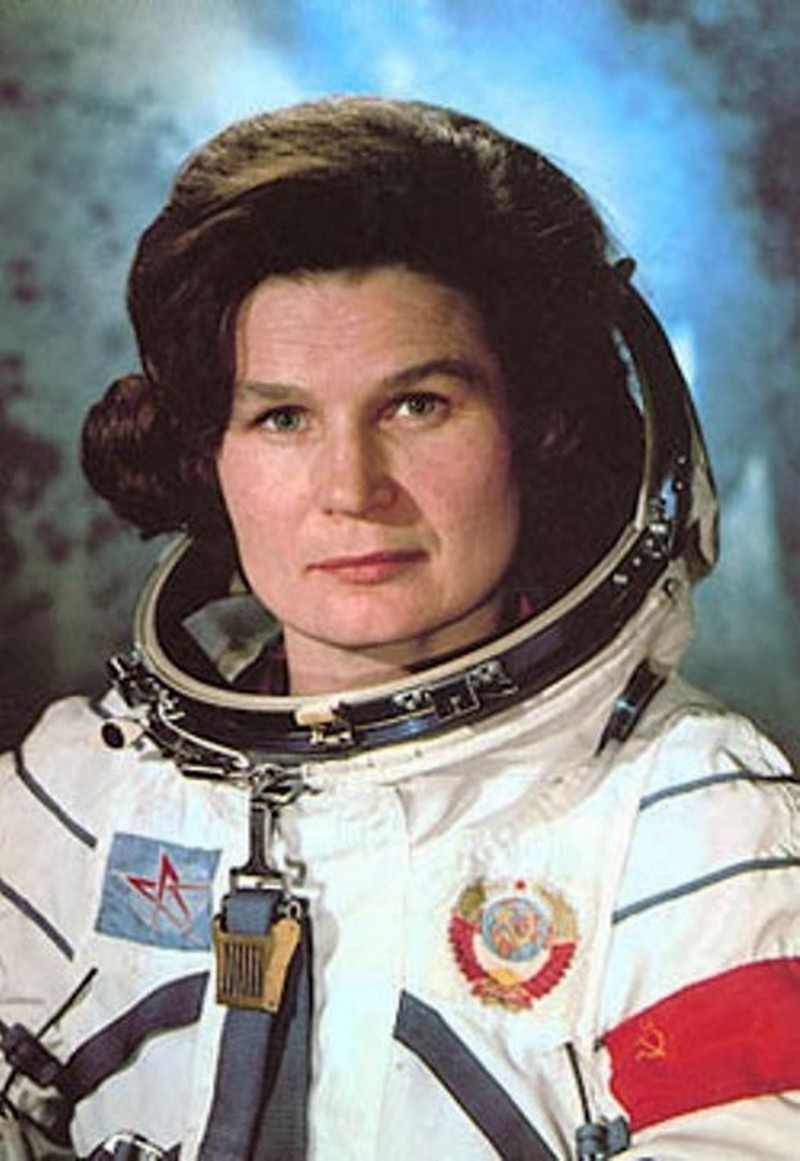by Helen Jackson
What would you need to pack to go to space? If you didn't
say a toothbrush, then you wouldn't be alone because, on the 16th June 1963,
Valentina Tereshkova realised that her supplies packed by the Soviet space
agency didn’t include a toothbrush. Tereshkova was on the first - and only -
manned solo mission by a woman to space. At 144 miles above the earth, she
wasn't in any position to pick up a toothbrush, but that was the least of her
worries.
As well as being the first woman to fly in space,
Tereshkova was also the first civilian to fly in space after being honorarily
inducted into the Soviet Air Force in order to become a cosmonaut. She was also
the first person in space to have a mission emblem; a seagull, that was also
her call signal.
Her life did not start out as one might assume; her
father died in the Second World War when she was two and she was in school from
the age of eight until sixteen (1945 until 1953), when she left to work in the
textiles factory alongside her mother. Aside from working, however, a young
Tereshkova became increasingly interested in skydiving, training at her local
Aeroclub and completing her first jump at the age of twenty two. It was
actually her skydiving experience that made her suited to being a cosmonaut, as
soviet cosmonauts had to parachute from their crafts upon re entry. Inspired by
Yuri Gagarin in 1961, Tereshkova and four other women were selected from four
hundred applicants from across the Soviet Union to be trained to be cosmonauts.
Their training included weightless flights and 120 parachute jumps, and, on
16th June 1963, Tereshkova was launched into space in her craft, Vostok 6,
shouting the words: “Hey sky, take off your hat! I'm coming to see you.”
At the age of just 26, Tereshkova was the second youngest
person to go to space (the youngest being cosmonaut Gherman Titov). Upon
entering orbit, she discovered that her control programme had an error that
would send her away from Earth rather than towards it on her return journey.
Thankfully, ground control was able to correct it, but Tereshkova had to keep
the problem a secret - and she did, for thirty years. After completing forty
eight orbits over three days, Tereshkova had to hold Vostok steady using manual
controls, then use the rocket engine to drop out of orbit. Hurtling at 16,777
mph through the earth’s atmosphere, the cosmonaut’s skydiving experience came
into her own when she ejected from her craft 4 miles from the surface. However,
even her landing wasn't going to be plain sailing:
“There was a lake beneath me, but the big, heavy
parachute which had to be opened two miles above the ground couldn’t be
steered. My first thought was ‘Lord they send just one woman into space and she
has to end up in the water’.”
Tereshkova landed safely, however, and became a hero of
the Soviet Union. She and her partner Valery Bykovski, who flew in Vostok 5,
had their faces put on postage stamps. Everything seemed to be going her way
and another female flight was being planned, until it was suddenly decided that
the Soviet Union would not send any more women into space. Tereshkova and her
other female cosmonauts protested, but it took another nineteen years for the
soviets to send another woman, Svetlana Savitskaya, into space. “On Earth, men
and women are taking the same risks.” Tereshkova complained. “Why shouldn't we
be taking the same risks in space?”
To reward her for her service to her country, Tereshkova
asked that the site where her father was killed in action during the Finnish
Winter War, was searched for and published. A monument now stands at the site
in Lemetti, and subsequently Tereshkova has visited Finland several times.
After the dissolution of the first group of female
cosmonauts in 1969, Dr Valentina Tereshkova became a prominent member of the
Communist Party of the Soviet Union, and remained politically active following
the collapse of the Soviet Union. Today, she is still considered a hero in
Russia, but has somewhat faded into obscurity in the west. Her words for any
aspiring astronauts:
"Work hard and you will get there. I am very jealous
of you!"

Comments
Post a Comment
Comments with names are more likely to be published.